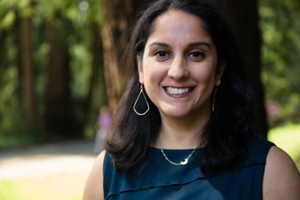Rachel Carson College Faculty Fellows

Sikina Jinnah is Rachel Carson College's new faculty chair!
The Chair of the Faculty is an Academic Senate member, other than the Provost, who is elected by the college Faculty to serve a two year term, and will serve as a member of the Executive Committee.
Dr. Jinnah is an Associate Professor in the Politics Department, an affiliated faculty member in the Environmental Studies Department, and a 2017 Andrew Carnegie Fellow. Her research focuses on the shifting locations of power and influence in global environmental governance, and in particular the role of transnational actors in environmental decision-making. Her most recent projects examine how key norms in global climate politics shape power relations, the role of U.S. preferential trade agreements in shaping environmental policy in trading partner nations, and the politics of climate engineering governance.
- Title
- Professor
- Division Physical & Biological Sciences Division
- Department
- Ecology & Evolutionary Biology Department
- Institute of Marine Sciences
- Affiliations Environmental Studies Department
- Phone 831-459-5123
- Fax 831-459-3383
- Website
- Office Location
- CSC Coastal Biology Building, 262
- Office Hours Friday 1030-1130 & TBA
- Mail Stop Long Marine Lab
- Mailing Address
- 100 Shaffer Road
- Santa Cruz CA 95060
Research Interests
Environmental and Exercise Physiology; Functional Biodiversity
Our research program investigates common morphological features and physiological limitations of marine and terrestrial animals. Primary areas of study include swimming and running energetics, thermoregulation during exercise, and the plasticity of mammalian skeletal muscle. By examining the functional relationships between animals and their environment, we can begin to understand the ecological significance of a species and the adaptive changes that may be necessary for its survival. This research approach provides a powerful tool that enables our group to predict the responses of animals to novel environmental perturbations and to speculate about the physiology and biomechanics of ancestral forms. For example, the thermal lability of marine mammals indicates the level of vulnerability of individual species to natural (El Niño) and anthropogenic (pollution, over-fishing) events. Current research projects in our laboratory that address this problem include metabolic regulation in swimming and diving dolphins, hunting behavior and physiology of Weddell seals in the Antarctic, and the effects of pregnancy on nutritional status of declining populations of Steller sea lions.
The regulation of oxygen uptake and utilization in the skeletal muscles of exercising mammals is another major research area in our laboratory. In the diving or sprinting mammal, the contracting muscle must operate as a closed system. These animals afford an opportunity to examine the expression of molecular and cellular mechanisms that promote enhanced performance while preventing tissue damage during anoxia or hypoxia.
Biography, Education and Training
M.S., Rutgers University
Ph.D., Rutgers University
NIH Postdoctoral Fellow, Scripps Institution of Oceanography
Kaiser Environmental Fellow, San Diego Zoological Society
